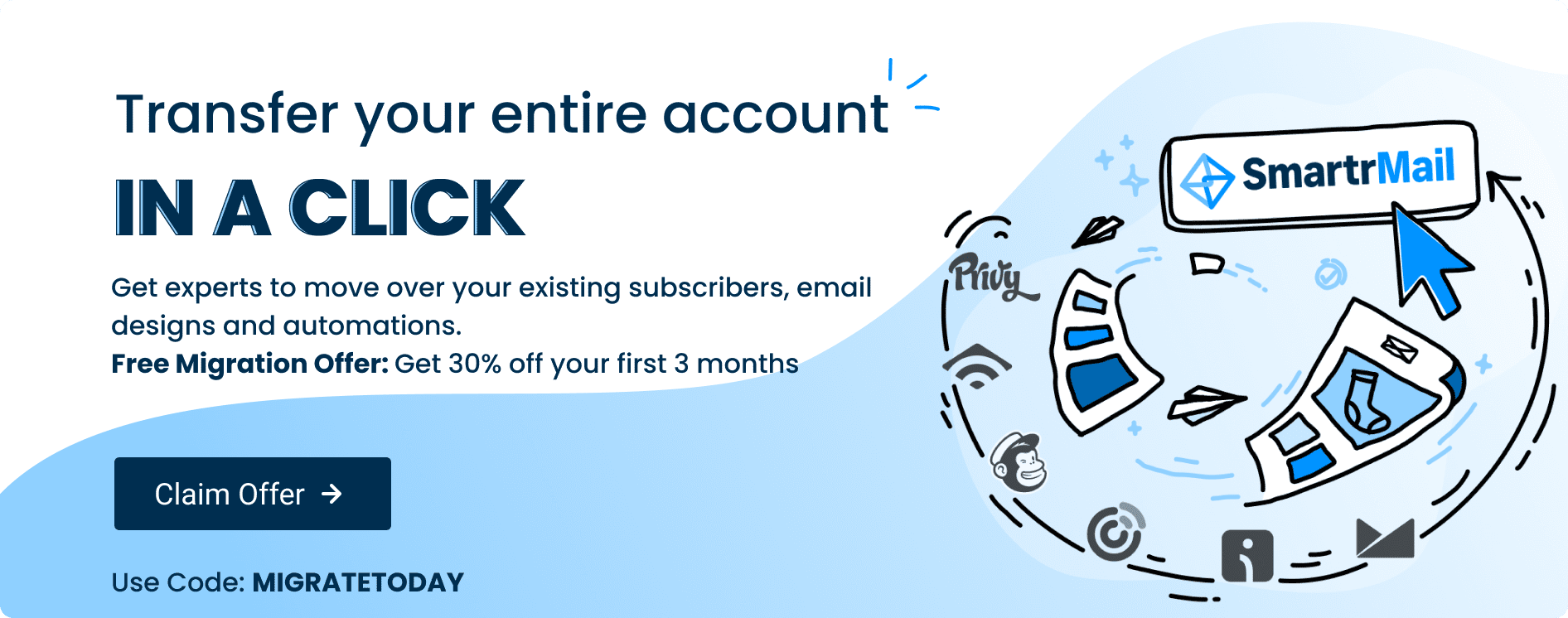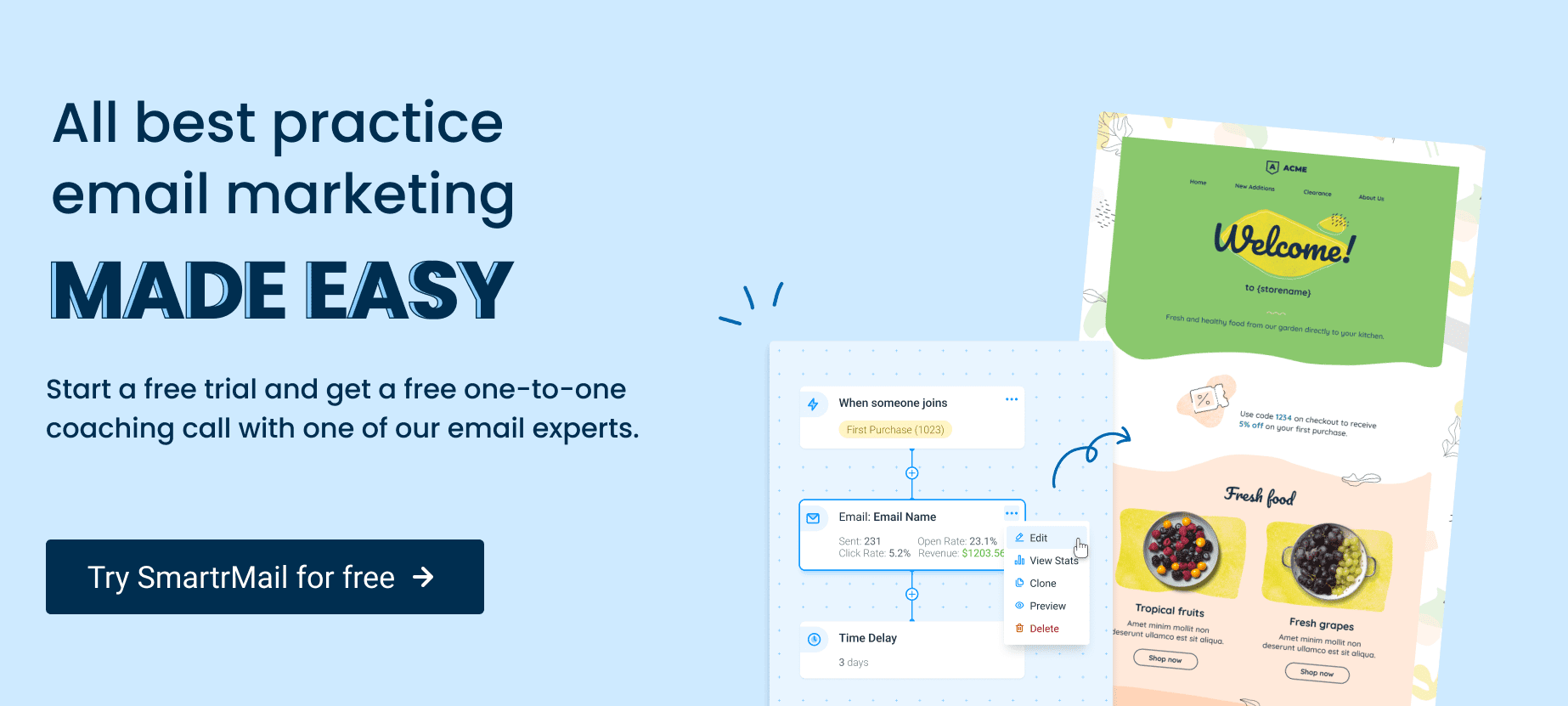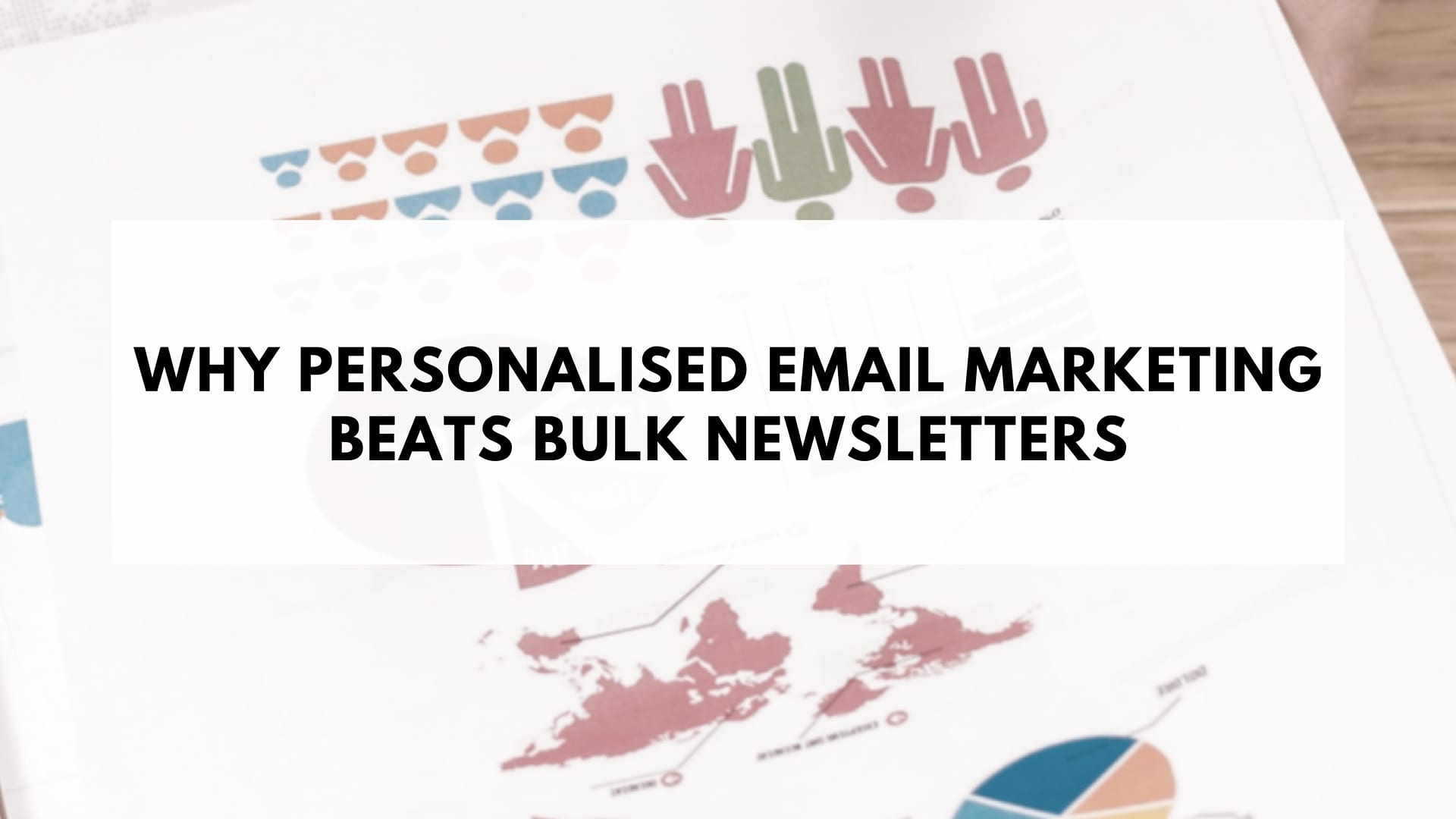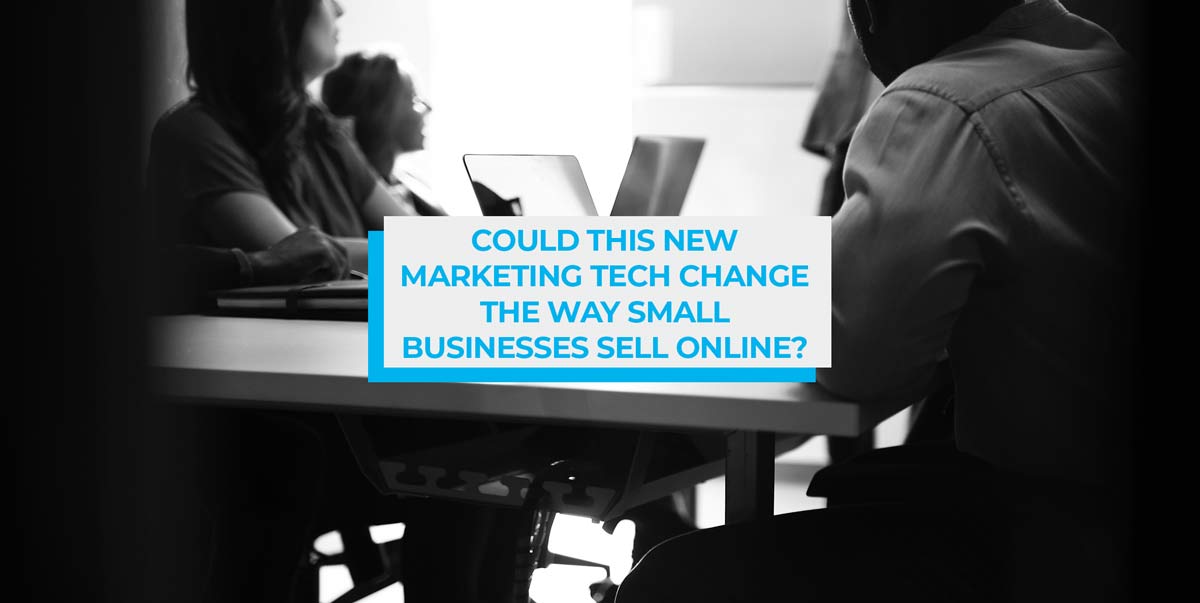The past couple of months have been disruptive for everyone the world over.
Travel restrictions, business shutdowns, and stay-at-home directives have resulted in a level of disruption and confusion few have experienced before. And while this impacts everyone differently, merchants are facing a drastically altered commerce landscape.
Massive fluctuations in consumer demand (both up and down), panic buying, suppliers unable to fulfil orders, having to close physical stores and more have all changed commerce in an incredibly short amount of time.
This has merchants unsure of how to proceed with many things, not the least of which is email marketing.
Should you continue with email marketing? Do you still try to push products even though the world is in the midst of a pandemic? Are customers too concerned about other things to be worried about your business?
These are all valid questions.
To help provide answers for you, we’ve reached out to seasoned marketers for their top suggestions on how to proceed with email marketing.
Here’s what they came up with.
Don’t go quiet
Everyone agrees that now isn’t the time to stop emailing your customers.
Instead, it’s important to keep communicating with your email list, as Chrissy Bernal, a brand partner and publicist, points out:
Some marketers are scared of coming off as tacky if they send emails during a crisis.
Now is the wrong time to go silent. Marketers need to simply adjust their messaging so as to not come off as tone-deaf.
Denisa Calin from Digital Silk sees email as one of the most important channels there is during a situation like this pandemic.
During a time of crisis, email becomes one of the most reliable and intimate communication methods and should not be ignored. Audiences expect to hear from you because in times of turmoil, the need for leadership rises and brands have the opportunity to step up and lead the narrative.
And Bruce Hogan from SoftwarePundit explains why email is the perfect channel for communicating with your customers:
One of the most beneficial and unique qualities of the email channel is that it is personal. Email messages are delivered to people’s inboxes, not broadcasted on Google or Facebook.
Instead of going quiet, Bruce recommends you simply take extra care with your messaging.
Merchants should spend extra time ensuring that their message is authentic and timely. This will help the business connect emotionally with the email recipients during this unfortunate time.

Remember that customers are often supportive, too
Jessica Rose from Copper H2O reminds merchants that their customers often want to see them succeed and so can be supportive too:
While the last few weeks have been very difficult, they have demonstrated the incredible way that communities can come together. Merchants should realize that their customers can be very supportive during this period and tolerant of shipping delays and other issues, provided that the merchant provides frequent updates in a prompt and forthright manner.
Jessica also points out that by continuing to email your customers, it’s not just compassion and understanding that you’re generating, but you’re also staying top of mind:
Email marketing can also be used to keep customers updated while also keeping top of mind. By dealing with your customers in this manner, you can increase goodwill and even earn additional business from your customers’ friends and family.
The qualities of good COVID-19 emails
When it comes to how to approach your email newsletters, Polly Kay from English Blinds recommends three key elements: honesty, clarity and reassurance:
Successful email marketing during the pandemic encompasses three elements: Honesty, clarity, and reassurance. Here’s how that looks in practice.
Honesty means being upfront with prospects about things like potential delays, issues with fulfillment, a lack of customer service provision, and other potential pain points.
Clarity means outlining clearly what you can offer, how it will be delivered or executed, and what customers can expect from you.
Reassurance means letting customers know you’re still there for them; how you’re ensuring the safety of your customers and staff alike; and letting them know that you’re doing everything you can to serve them.
Sign-up to our newsletter and receive a free eBook with hidden Email Marketing Tips
Clarity: Keeping customers informed with what’s going on
Putting these three elements together means keeping your customers and clients informed as to what’s going on for your business.
Greg Birch from Drop Ship Lifestyle reiterates this point:
Business owners can use email marketing to build trust with their customers during COVID-19. Explain what steps your business is taking to keep their employees and customers safe. Let them know if your inventory is or is not affected. Inform them of increased shipping times or altered office hours. In this way, your customers will know what is going on and what they can expect from you.
Honesty: Be transparent with your customers
Dennis Vu from RingBlaze agrees and also emphasizes that being upfront and honest with your customers will lead to better relationships.
If you’re a merchant in a crisis because of the coronavirus, there is only one thing that I can recommend for your email marketing campaign – transparency.
Tell your customers what’s actually happening, what you’re having problems with and how it’s going to affect them. A lot of times, you will see your buyers empathizing and your orders even increasing. People don’t like lies, but they don’t like sob stories either. Talk to your customers like they are your best friend and they will pay you back with trust and new business.
Reassurance: We’re all in this together
For Anna Caldwell from Caldwell Media Arts, reassurance is all about letting your customers know that we’re in this together.
Your email marketing should take a ‘we’re all in this together’ approach. Send emails of a positive nature that highlight products and services that you can still provide.
But she cautions against claiming that everything is fine if customers are going to experience disruptions.
Do not overpromise and underdeliver.
It’s critical that you are honest with your customers about any limitations you may be facing with your supply and delivery. In most cases, a clearly stated policy and prompt customer service response regarding shipping times is more than enough to keep the confidence of your customers.
Share only the relevant information
While in the spirit of openness and transparency, it might be tempting to provide updates on every little thing your business is doing, many experts advise against oversharing.
Mark Webster, co-founder of Authority Hacker, suggests that merchants remember that their customers are already being flooded with COVID emails from just about everybody else:
One of the most important things to consider is that we’re rapidly approaching a saturation point with COVID-19 related emails.
For that reason, it’s important to be concise in your communication. People are becoming less interested in empty gesture emails that say things like “we’re monitoring the situation”. They simply want to know what things have changed and what they need to look out for. They don’t want excuses – they know supply chains and delivery networks are disrupted, you don’t need to spell that out anymore. Get to the point and explain what that means for them.
Remember, the less time you spend providing actual information in your emails, the more and more disengaged your audience will become.
Dan Bailey, president of WikiLawn, also warns against simply sharing an email update for the sake of an email update:
I’ve been getting a lot of emails attempting to commiserate about the virus and lockdown, and I really don’t think this is the way to go. It reads as out of touch at best, condescending at worst.
If you want to leverage the fact that everyone’s stuck at home, use it to give them something of value. Articles, guides, videos, etc. Take this time to establish a relationship, because you’re far more likely to have their attention if you aren’t abusing it.
Katie Childers from Smart Girl Digital agrees that while email is an essential tool and that merchants shouldn’t go quiet, it’s important to be providing value to your audience:
During the time of rapidly changing circumstances, email marketing can be a direct line of communication to your customers. However, overdoing it can cause discontent with your email lists.
Instead, deliver extreme value through relevant information about your operations, set expectations for delivery changes (as necessary), and show you care by telling stories that share how you are giving back to support others during uncertain times.

Focus on branding building instead of aggressively trying to make sales
After you’ve provided any necessary updates to your customers, you might be tempted to try to make some sales. Many experts, however, advise against going for any hard sales pushes during this time. Instead, they suggest using email to help build your brand.
Calloway Cook from Illuminate Labs makes this exact point:
I would recommend reducing the quantity of pure sales emails (discounts, new product features, etc) and increasing the quantity of content marketing emails.
Aggressively selling to your consumer base, many of whom are likely struggling financially at the moment, isn’t good for your brand. You still want to stay top-of-mind, but you can do so without leaving a bad taste in everyone’s mouth by shilling products every day during a global pandemic.
Sean Nguyen from Internet Advisors agrees that what people need right now is connection and not sales blasts:
The thing people are missing most right now is connection.
Ordering something online from a store doesn’t necessarily replace this, but it can. The most common way a business can connect to people in this time is to demonstrate clearly how they meet a need. Empathetic email campaigns designed around helping people get through this crisis — not always to sell something — can help develop deep brand affinity that will make it easier for a company to navigate these currently very stormy seas.
Provide unique, engaging content
One way of building your brand image is to share content that’s useful and engaging to your customers.
Robert Remak from Art of The Gentleman states why content and email marketing not only go well together, but why it’s important they do:
If your company’s inventory runs out of stock or temporarily closes; by gathering emails you can continue to stay connected to your customers by sending updates and announcements related to your company’s status.
In addition to that, sending brand-focused valuable content to your subscribers will keep them engaged with your brand. All of the above will yield great results when the economy and your company picks back up.
Brett Downes from the agency HaroHelpers shares how generating content, especially when it’s something people can engage with while staying at home, has worked wonders for a client:
We work with a salon and have been in control of their email marketing for about 6 months now and we came up with a novel idea…
They filmed a video on how to cut your hair yourself which really helped them build up a stack of email addresses of potential customers.
For current clients they have also sent emails to all clients that have their hair coloured/dyed on a regular basis, offering to make the dye up for them from the client hair profile they have.
This can be mailed to them for a discounted cost, this helps customers maintain their color between salon visits. Much better quality and personalised than store bought dyes, and cheaper than a visit to a salon.
Live streams are great for engagement
If you’re not sure what type of content you can or should come up with, Susan Gonzales from Node Marketing suggests live streaming:
With everyone stuck at home during this lockdown period, not only are more of your customers available to engage with you, but the desire to connect with a human being is also at an all-time high.
That’s why it’s a perfect time to host a live community event (via Zoom, FB Live, etc.) with your customers and invite them via email. Your customers will always remember that your email campaigns come from a real person and, as a result, they’ll be much more likely to engage with you (and purchase with you) in the present and future.
Guides and other resources are also good for engagement
Hosting a live stream is a great way to build engagement if you have the time, resources and a large enough audience.
If your store isn’t quite ready for live streaming just yet, then simply providing resources like guides as Keeon Yazdani from WE R CBD does can be an easier way to generate engagement:
We have tailored our email marketing campaigns around providing our subscribers with educational content about CBD through blog posts and resources.
We believe this is a good time to educate our email subscribers about the benefits of CBD since most individuals are sitting at home with time on their hands. Our goal is to convert email subscribers who aren’t currently customers into customers once the pandemic is over.
Sign-up to our newsletter and receive a free eBook with hidden Email Marketing Tips
Emphasize the social good that you’re doing
For a lot of people, the coronavirus pandemic has made people yearn for any good news about the world, as Chris Kaiser from Click A Tree observes:
One interesting development since COVID is that using social and ecological triggers as lead magnet works wonders. This global crisis made people understand there’s more to life than a self-centered lifestyle.
If your business is having a positive impact on others, even if it’s just within your neighborhood, Chris recommends highlighting it in your email marketing:
Highlight the altruistic aspects of your business. Both as a lead magnet and in your email marketing communications. People feel a need to help other humans and our planet during these challenging times – show them how they can do so by using your services.
If you are struggling, email marketing can still help
If your business is struggling to generate enough sales or if you are running out of stock, there are certain email automations that you can use to support your store during this time, as George Hartley from SmartrMail points out.
There are several email tools at merchants’ disposable to help see them and their stores through this crisis.
In particular, many merchants are experiencing supply chain issues leaving them without stock and unsure of when their next delivery will be. If you’re in this situation, back in stock notifications are a great way to keep customers informed of what’s happening without increasing your workload.
Check out our list of email automations to support your store through COVID-19 here for more ideas on how to make the most out of email marketing.
At the end of the day, email is the most reliable channel
As the final expert word, Alexander M. Kehoe from Caveni reminds us of the power of email for merchants:
Email marketing is one of the safest forms of marketing during a crisis, especially one that requires people to stay home on their computer all day.
Ecommerce providers are in a particularly good position to offer buyer incentives and to sustain their business as normal; demand for products is not as much reduced as it is incredibly inconvenient to find what a customer may need.
We couldn’t state the need to remain connected with your subscribers better ourselves.
More coronavirus email marketing resources
In addition to these tips, we’ve also put together a guide to email marketing during the coronavirus pandemic.
You can view more resources on our blog here.




